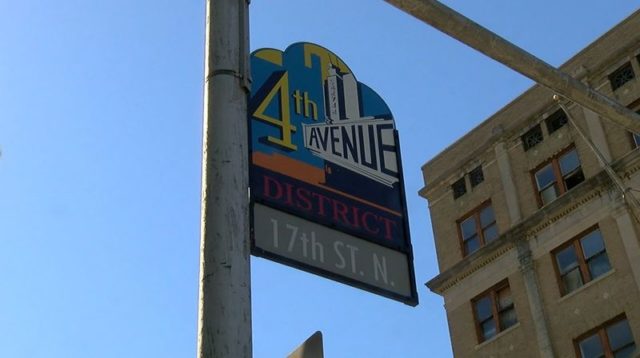By Erica Wright
The Birmingham Times
Urban Impact last week hosted a community conversation around Freedom Walk, a vision to link the Historic 4th Avenue Business District, Birmingham Civil Rights District and Birmingham Civil Rights National Monument District into an area where people can live, work, shop and experience history.
“We’re in the business of trying to create an opportunity of place, an opportunity for people and an opportunity for business,” said Ivan Holloway, executive director of Urban Impact. “People, place and business is what we like to think about.”
During the hour and a half long conversation at historic LR Hall Auditorium, citizens heard from Urban Impact’s leadership on what Freedom Walk could be like in the future as well as give input of what they would like to see.
“When we think about Birmingham — one of the most unique cultural assets — we’ve got to think about how we really develop it, not just physically but culturally and in a programmatic way and that’s what we have here today,” said Elijah Davis, strategic growth manager at Urban Impact.
“We’ve engaged most of the 77 property owners in the 18 square blocks of our district, we’ve created plans and we’ve been listening to our merchants about their market and branding and we’ve been listening to the greater community about place making opportunities and we believe Freedom Walk encapsulates that,” he said.
Urban Impact partnered with the University of Alabama, Alabama Power, and the Urban Land Institute to conduct market studies to help make plans for Freedom Walk and collected other data to determine what would be the best plan for the project.
With the help of Innovate Birmingham a local group that helps underemployed and unemployed young adults with resources to advance into Information Technology (IT) jobs, Urban Impact conducted a customer survey to get input and feedback from the public.
“We talked about what people in different age brackets really wanted and so we assessed baby boomers, millennials, the generation X-ers on the types of amenities that people want such as outdoor spaces, Wi-Fi and what this means,” said Davis.
“This is a great tapestry that really begins to build out what are we developing and who we are developing it for. No one starts their business or a market without a clue so one of the things that we see are things that are recurring, easier access to parking, reliable Wi-Fi, transportation and all of the things that really come into play here,” he said.
The historic Fourth Avenue Business District and the Civil Rights District are located in a part of downtown Birmingham where several significant events in the Civil Rights Movement took place in the 1950s and 1960s. Over the next two years, about $70 million will be invested in efforts to restore and renew the area.
“We want to keep the integrity and significance of this district and this is across sample sizes and representative samples. People want to really make sure that there is a capitalization of the National Monument but people also see there is a perception issue,” said Davis. “There is this promise but we also have to reconcile that with perception and that’s what really brings us together.”
He added, “We have an enclave of not only third generation family businesses but we have an enclave of African American businesses and property owners and our thesis is the events of 1963 and the physical remembrance of it… there is a specific Birmingham movement that influences the entire world but that experience is not just in the past but can also be told in the present and be used to provide opportunities in the future,” said Davis.
National Monument
In January 2017, the Obama Administration designated 4.5 blocks of the Birmingham Civil Rights District and Bethel Baptist Church in Collegeville a National Park. It will focus on the events of 1963 including Project C and the 16th Street Baptist Church Bombing which will all be a part of the national monument.
The AG Gaston Motel, renowned for hosting the strategic planning meetings for the Birmingham Campaign, is presently undergoing a $10 million restoration and redevelopment, scheduled to be completed by the fourth quarter) of 2021. The National Park Service will occupy the west wing of the motel and use the space to as different forms of communication to enhance the understanding of history around “Room 30” where much of the Birmingham Campaign was planned. Other key sites include the Colored Masonic Temple, the AG Gaston Office Building, Kelly Ingram Park, Bethel Baptist Church, the Birmingham Civil Rights Institute (BCRI), St. Paul United Methodist Church, Metropolitan AME Zion Church and 16th Street Baptist Church.
The Sixteenth Street Baptist Church would serve as the center of Freedom Walk as it what connects the National Civil Rights Monument, Birmingham Civil Rights District and the 4th Avenue Business District together.
Urban Impact officials said Freedom Walk will be about more than history.
“We have a themed district with new hotel and retail opportunities, the monument, entrepreneurship and entertainment incubators, and figuring out how to jump start development here,” said Davis.




